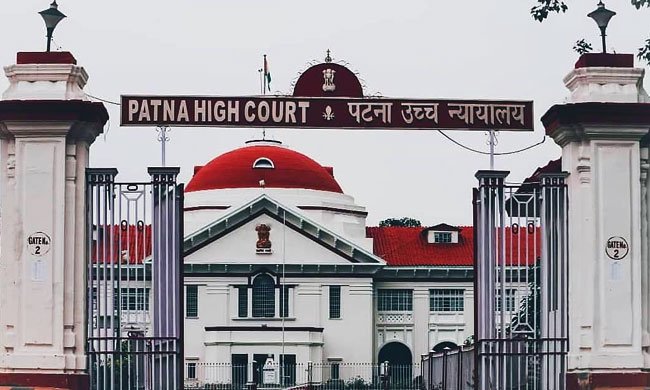Bihar News: 9 November 2023… This is the same date on which the bill providing 65% reservation for some deprived castes in government jobs and educational institutions was passed in the Bihar Assembly. Now after 7 months, the Patna High Court has repealed this law.
Addressing the Bihar Assembly that day, Chief Minister Nitish Kumar had said, “Now the total reservation will be 75 per cent, of which 10 per cent is for economically weaker sections. This was started by the Centre a few years ago and we have also implemented it in the state.”
Table of Contents
The Mahagathbandhan government of Bihar had conducted a caste-based survey. Based on the results of the survey, two bills providing reservation in government jobs and schools and colleges were passed unanimously. These bills were passed unanimously by voice vote.
- Reservation for Scheduled Tribes (ST) was doubled from 1% to 2%
- Reservation for Scheduled Castes (SC) was increased from 16% to 20%
- Reservation for Backward Classes (OBC) was increased from 12% to 15%
- Reservation for General Category (EBC) was increased from 18% to 25%
After this decision, Bihar became the state with the highest reservation among the big states, where the total reservation became 75%. Some people had challenged these laws by filing a petition in the court. The hearing on these petitions was completed in March 2024 and the decision was reserved. Now the court has rejected these laws.
‘As much as the population, so much the share’
On October 2 last year, the Nitish Kumar-led state government released its report on the caste survey. After this, Nitish Kumar had said, ‘According to the caste survey report, there is a need to increase the reservation quota for SC, ST, EBC and OBC. The reservation quota can be increased according to their population.’
Nitish Kumar proposed in the assembly that according to the survey, the population of Scheduled Castes (SC) in the state is 19.7%, so they should get a quota of 20% increased from the current 16%. Scheduled Tribes (ST) have a share of 1.7%, so their reservation should be doubled from 1% to 2%. The population of Other Backward Classes (OBC) is 27%. They get 12% reservation. The population of Extremely Backward Classes (EBC) is 36% and they get 18% reservation. A proposal was made to give 43% reservation to these two communities together.
94 lakh poor families in the state
The detailed report of the caste survey presented in the assembly included social and economic data. According to the report, 34% of the families in the state earn Rs 6,000 or less per month.
It is worth noting that among the upper castes, Bhumihars (2.9%), which constitute about 15.4% of the population, and Yadavs (14.3%), which constitute about 27% of the Other Backward Classes (OBC), live in greater poverty than others. Overall, there are 94 lakh poor families in the state. However, the report also states that the literacy rate of the state has increased from 61.8% in 2011 to 79.7% now.

Why did the High Court cancel the 65% reservation law?
On June 20, 2024, the Patna High Court struck down two laws of the Bihar government. The first law was to increase reservation in government jobs and the second for admissions in educational institutions. Both these laws were of 2023. The court gave this decision because these laws were considered to be in violation of Articles 14, 15 and 16 of the Constitution. These articles talk about the right to equality.
This decision has come on the petition of Rakesh Kumar, a resident of Nalanda, and some other people. Rakesh Kumar and some other people had petitioned the court that increasing reservation so much is not right. So the court agreed with them and cancelled this decision of the government.
What did the petitioner argue?
Petitioner Rakesh Kumar said that the Constitution of India does not talk about ‘proportional representation’ but about ‘proper representation’. The petitioner also argued that the Supreme Court had earlier also struck down similar decisions, so it was not right for the state government to increase the quota limit. The Central and Bihar governments were made respondents in this case.
Advocate Nirbhay Prashant, appearing for petitioner Rakesh Kumar, said, “We argued in the court that the government notification violates Articles 14, 15 and 16 of the Constitution, which talk about the right to equality and adequate representation to all, and not just representation in proportion to each class. Dr BR Ambedkar had also said something similar in the Constituent Assembly. Also, such a decision by the state government has been struck down earlier as well.”
Why are state governments not able to provide more than 50% reservation?
The Supreme Court had said in 1992 that if the reservation exceeds 50%, it will affect the right to give equal rights to everyone (as written in Article 14). This is why many states want to provide reservation to people of different castes and regions, such as Jats, Marathas and Muslims, but this rule of more than 50% reservation hinders them.
The 1992 decision of the Supreme Court has also been challenged. In the year 2021, a five-judge bench of the Supreme Court refused to re-hear the 1992 decision in the Indira Swarn Singh case.
At that time, Judge Ashok Bhushan had also said that if the reservation limit is increased beyond 50%, it will not be good. This will end equality in society and everything will be based on caste. Increasing this limit will mean walking on slippery ground. Due to political pressure, it will also be difficult to reduce this limit.

